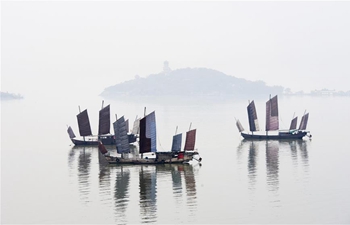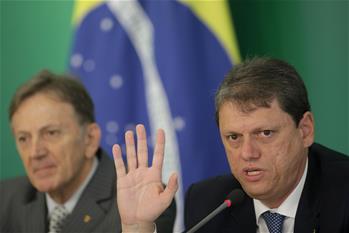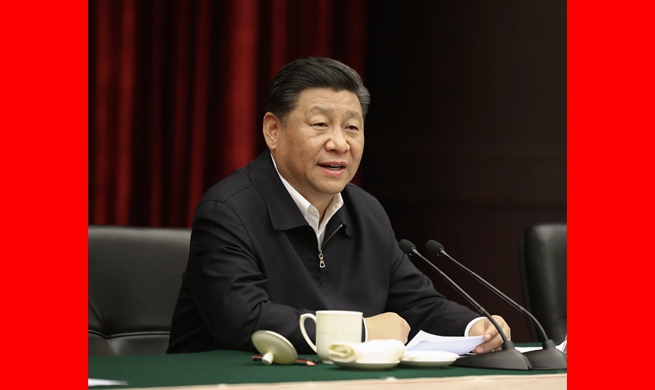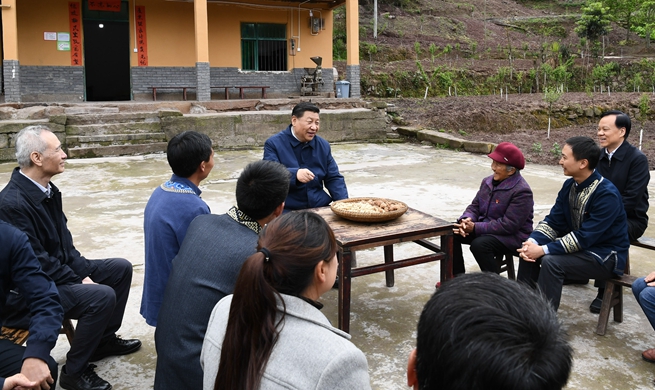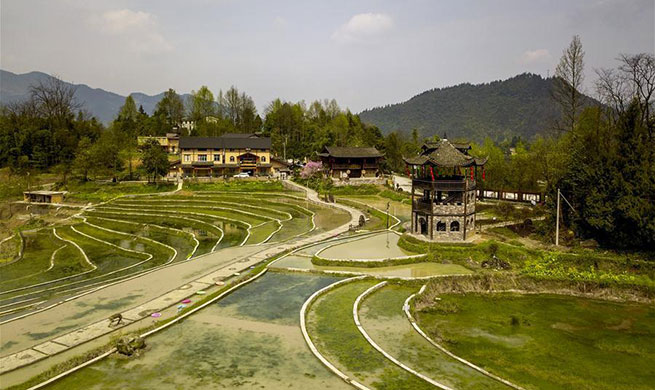JUBA, April 17 (Xinhua) -- South Sudan said on Wednesday that the ruling military council in Khartoum will maintain existing bilateral agreements and relations between the two neighboring countries after the ouster of former President Omar al-Bashir last week following street protests in the Sudanese capital.
Mawien Makol Ariik, foreign ministry spokesman, said that the military council led by Abdel-Fattah al-Burhan, have already assured South Sudanese President Salva Kiir of maintaining the current ties that include the 2012 cooperation agreement on sharing oil revenue and settlement of post-secession outstanding debts and border dispute.
"Our President (Kiir) called the military council and spoke to them and tried to urge them to work with South Sudan. They are ready as you have seen in their declaration they said all the agreements and relations that are there before, they are maintaining them, they will not change anything," Makol told journalists in Juba.
"They are not coming as new people that will come and change the entire (political) landscape," added Makol.
Under the 2012 cooperation agreement, Juba agreed to pay 3 billion U.S. dollars to Khartoum as compensation for oil reserves Khartoum lost to Juba after independence in 2011.
The two countries are still yet also to resolve their dispute over the oil-rich Abyei region administered by Sudan as they await the UN mandated referendum on the issue.
Makol disclosed that they are keenly monitoring events in Khartoum and urged all political groups to reach compromise that will ensure stability in its northern neighbor.
Oil-dependent South Sudan relies on Sudan's oil infrastructure to transport its crude for export through Port Sudan.
"We have been saying that Sudanese are capable of overcoming this situation. We stand with the people of Sudan and also stand with the military council to try to calm the situation down and bring all parties together for peaceful settlement of the issue," said Makol.
He added that they are willing to continue working with the Sudanese government, which is among the key guarantors of the revitalized peace deal, signed in September 2018 in Ethiopia following mediation by al-Bashir under auspices of the regional body Inter-Governmental Authority on Development (IGAD).
"So we also urge them (military council) to support the implementation of peace and the (transitional) government that is coming up in May. The relationship between Sudan and South Sudan is not government relations as such, it is the people to people relationship no matter what (political) changes occur," revealed Makol.
South Sudan descended into civil war in late 2013, and the conflict has created one of the fastest growing refugee crises in the world.
A peace agreement signed in 2015 to end the violence was again violated in July 2016 when the rival factions resumed fighting in the capital Juba, forcing rebel leader Riek Machar to flee into exile.
The United Nations estimates that about 4 million South Sudanese have been displaced internally and externally.


